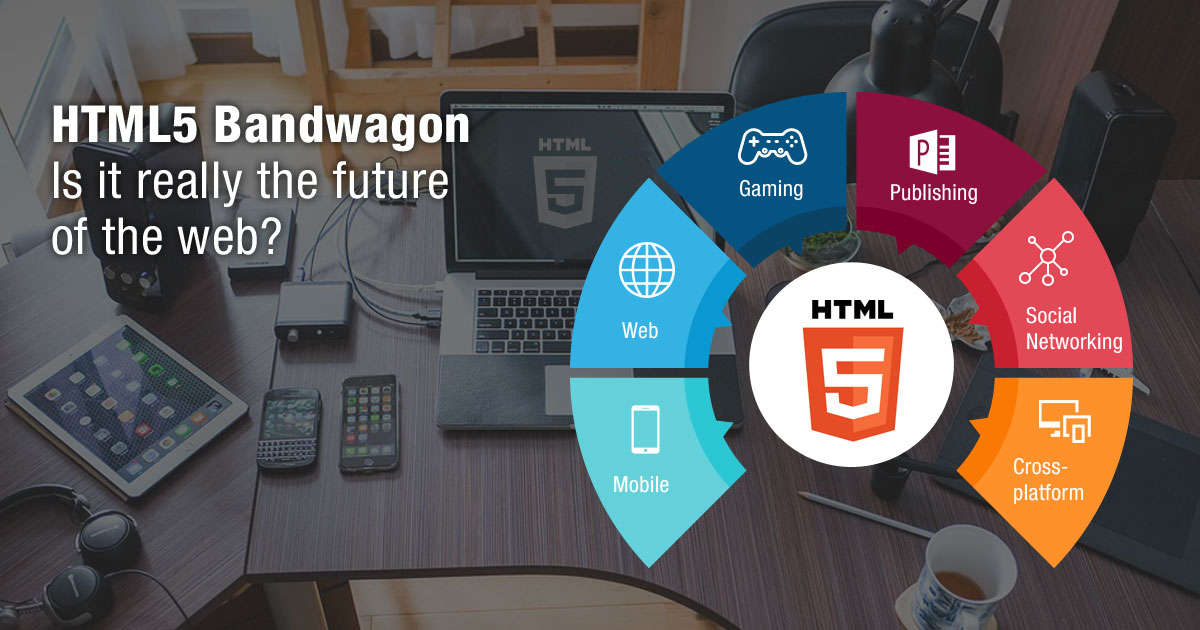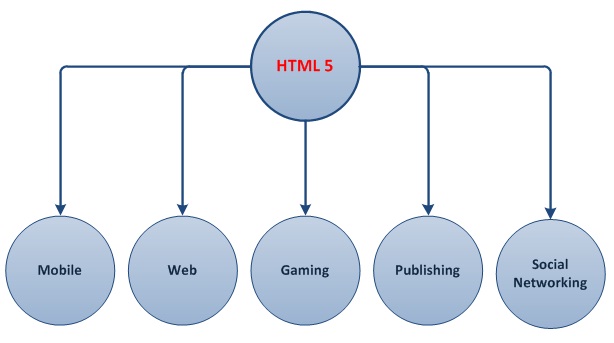Posted By
Christopher Dabhi
on
2. October 2013 02:12
Even though HTML5 is still in development, the new markup language is considered one of the most promising new technologies and the future of web and mobile development. David Goldman of CNN once called HTML5 the “future of the Web,” a tool that “promises to launch the next era of websites, smartphone apps and online videos.”
But is HTML5 really the future? Can we rely on HTML5 for mobile development? Will it truly replace Flash anytime in the near future? With all these questions and more, we have to ask – is HTML5 just a fad or is it here to stay?

HTML5 Basics
The original HTML (Hyper Text Markup Language) itself was a big leap. The web that exists today is only because HTML has been present for the last 20 years. But since then, it has greatly evolved to improve the web experience. Now with the stunning features promised in HTML5, the new iteration of the markup language has taken the web by storm and developers are already preparing to batten down the hatches. The new features include the ability to render multimedia content, such as embedded videos or animations, without the need of a plugin or a player. Features like these make HTML5 an indispensable and progressive technology.
Why HTML5?
- HTML5 reaches multiple devices, like desktop, mobile, tablets, and even television.
- HTML5 supports various development tools, like geolocation, camera, linked data, video, audio, images, and animation.
- HTML5 works on screens of all sizes. It offers support for various cross-device functionalities like touch, voice, vibrations, beeps, keyboards, etc.
- HTML5 is more secure. Probably the biggest advantage of HTML5 is that it can be encrypted to protect data.
- The web and mobile are already under the influence of HTML5 because of its flexibility, cost-effectiveness, semantic coding, and other unique features.
- HTML5 is eventually pairing up with television. HTML5 already has an influence in various mediums and TV is not far behind. A recent article by Justin Pearse (http://www.thedrum.com/opinion/2013/05/03/why-html5-will-be-future-tv) tells more about this feature.
- Cross-platform capability is one of the biggest advantages of HTML5. This influences game development as gaming apps will be able to work on any device.
- Even the digital publishing industry is fast catching up with the HTML5 bandwagon. EPUB3 and Kindle Format 8 have announced support for HTML5. HTML5 has the ability of embedding interactive sketchpad via the element, geolocation targeting and geocaching – which can be very useful assets for the publishing industry.
The influence of HTML5

Why HTML5?
HTML5 supports several extra-ordinary features that will change the way we develop for mobile and the web.
- Video/Audio Support– It is easier to render and add video, audio, charts, etc. This was previously a time-consuming process.
- Dynamic and Interactive – HTML5 encourages better interactivity as the developers can create a more dynamic website than its predecessor.
- Mobile – HTML5 works brilliantly with mobile devices. According to various researchers, mobile devices are gradually taking over the conventional desktops and even laptops as web browsers. Before HTML5 it was difficult to create a mobile-friendly website. With Adobe Flash taking a backseat, developers can rely on HTML5 to create mobile websites and applications.
- Code Changes – There have been a few developmental changes that make code easier to work with. This helps in building visually appealing websites without the need for as much JavaScript.
- Semantic Code – With HTML5 designers can work on “cleaner” code that is easier to read and understand. This increases accessibility and improves team development.
- Accessibility – HTML5 works on any browser (although it has limited compatibility with older browsers like IE6), and with any device.
HTML5 – The Future Technology
Indeed, with these benefits, HTML5 is the future of technology. The new markup language will be used to build platform independent applications that are more accessible. With features like, multimedia rendering, HTML5 has made a striking entry and is already in demand – despite still being in the early stages of development. HTML5 has already been widely adopted by various mediums.
So, have you started using HTML5?
Rate This Post:
2d3a3b82-6123-4ffb-86e5-047857e9a52a|5|4.0


